International Conference on Sustainable Goals 2.0 (ICSG 2.0)
- About IIMBG
- About the Conference
- Director’s Message
- Call for Papers
- BOOK OF ABSTRACTS
- Important Dates
- Keynote Speakers
- Submission Guidelines
- Publication Opportunity
- Fee
- Advisory Committee
- Organizing Committee
- Contact Us
About IIM Bodh Gaya
The Indian Institutes of Management have been the archetype of management schooling in India since their foundation after our independence. IIMs are perceived as the most prestigious and elite B-schools in India which lay emphasis on practical experience and critical thinking instead of rote learning and conventional academic schedule. Building on the grand heritage of the IIM brand, IIM Bodh Gaya fosters a culture and curriculum whose sole purpose is to create socially responsible managers and emotionally mature leaders. A dynamic curriculum in consonance with academics and industry experts provides the students with the opportunities to master new skills and explore diverse perspectives. Apart from the conventional classroom setup, IIM Bodh Gaya lays emphasis on practical learning as students partake in case studies, sessions with industry experts, live projects, etc. The institute’s thrust on meaningful research is evident through the credentials and accomplishments of its faculty that has publications in ABDC and Scopus listed journals of repute. Three of the faculties have been recognized as being among the top 2% of scientists globally across all disciplines, according to the latest publication by 'Elsevier'. In a short span of time, IIM Bodh Gaya has strengthened its position in the corporate world, with its students contributing to illustrious business organizations of the country.
IIM Bodh Gaya acknowledges the significance of exposure to global standards and contemporary trends for enrichment of its students’ learning experience. To bring that international exposure and cultural diversity to the campus, the institute has established collaborations with several reputed institutions in France, Venezuela, Russia, Mexico, Italy and S. Korea while discussions are underway with many other international universities across the globe.
Historically, the eastern part of the country has been an eminent seat of learning with ancient universities of Nalanda and Vikramshila where learners from all over the world congregated for pursuit of knowledge. Having been recognized as a key Buddhist destination, Bodh Gaya attracts millions of tourists every year. An ancient seat of learning that represents one of the prominent paths to enlightenment, Bodh Gaya is home to Mahabodhi Temple, a UNESCO World Heritage Site and several other notable temples and monasteries. Nestled in Bodh Gaya is the iconic 80 ft. statue of Buddha and Indosan Nippon temple that was constructed in 1972 and has a gallery of Japanese art. This land of enlightenment continues to serve as a source of inspiration for IIM Bodh Gaya in its journey to become The Enlightening IIM.
The first phase of the campus was inaugurated by the Prime Minister of the India, Shri Narendra Modi in February following which, the vice-president of India, Shri Jagdeep Dhankhar, attended the Convocation of the MBA 2022-24. The institute now has world-class infrastructure infusing modernity with classical architecture, which reflects in the significant improvement of NIRF ranking over the past three years. IIM Bodh Gaya, 73 in 2022, scaled to 53 in 2023 and jumped another 20 ranks to be positioned at 33 in 2024. Hosting the largest number of students among all IIMs, IIM Bodh Gaya also successfully hosted the Glogift Conference on “Flexible Strategies and Management Practices for a Sustainable Future in 2024”.
About the Conference
Sustainable development is crucial in present times, as it addresses the preservation of the environment, conservation of resources, enhancement of social well-being, and stability of the economy, all with the objective of fostering a future that is more equitable, resilient, and environmentally conscious.
The United Nations (UN) has accorded sustainability a high priority and has spearheaded the Decade of Action for sustainable development, with the goal of realizing the Sustainable Development Goals (SDGs) by the year 2030. The recognition of the critical necessity for sustainability and its enduring impact on humanity and the environment has united various community stakeholders. This includes businesses, governments, regulatory bodies, and society at large, who have adopted sustainable development goals through the adoption of eco-friendly practices, the enactment of regulations, the promotion of renewable energy, investment in sustainable technologies, and the enhancement of awareness regarding environmental and social issues.
In its contribution to the worldwide push towards sustainability, IIM Bodh Gaya presents a platform for the assembly of eminent academic scientists, researchers, faculty, and research scholars through the International Conference on Sustainable Goals 2.0 (ICSG 2.0). The conference is designed to serve as a forum for intellectuals engaged in diverse facets of sustainability to exchange and share their insights and experiences.
Director’s Message for ICSG 2.0 Conference
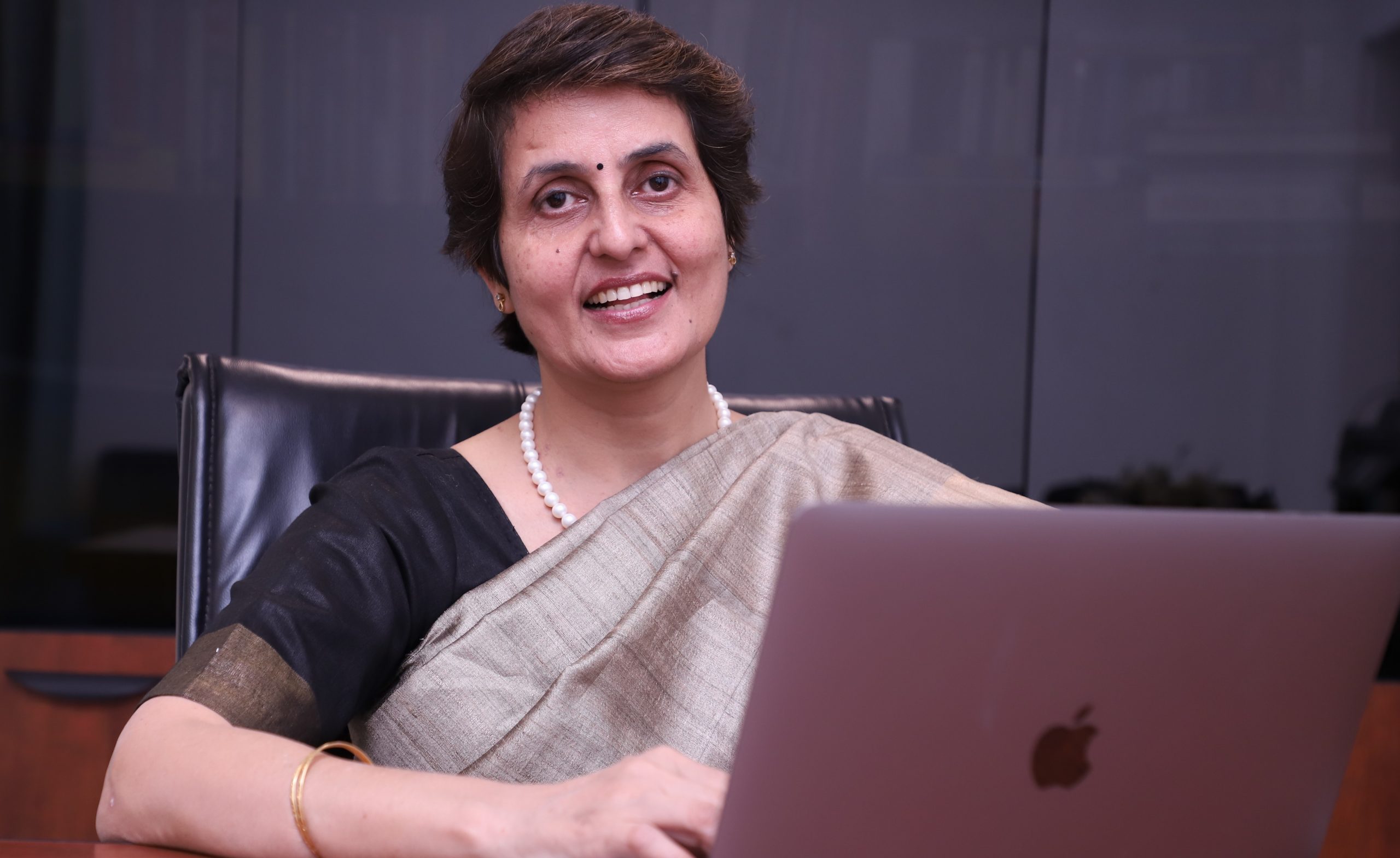
Dr Vinita S. Sahay
Welcome to Bodh Gaya: the Land of Enlightenment!It gives me immense pride and pleasure to invite you to the International Conference on Sustainable Goals 2.0 (ICSG 2.0), scheduled for 1st and 2nd February 2025, preceded by a pre-conference workshop on 31st January 2025. As one of India’s leading B-schools, IIM Bodh Gaya is dedicated to shaping global leaders and sustainable innovators. At IIM Bodh Gaya, we recognize that achieving sustainability demands a deep sense of mindfulness and shared responsibility toward the planet. The ethos of mindfulness and sustainability inherent to this sacred land guides our efforts in nurturing global leaders who embody innovation with a purpose and embrace sustainable practices.
ICSG 2.0 exemplifies our commitment to advancing sustainability through research, education, and community engagement. ICSG 2.0 will bring together eminent global dignitaries, industry leaders, renowned academics, researchers, and scholars from diverse disciplines. Under the theme “Sustainability Imperative: Challenges and Implications to Businesses, Government, and Society”, ICSG 2.0 provides a platform to exchange insights, spark collaboration, and explore solutions to build a sustainable future. We eagerly anticipate your participation and valuable contributions to this transformative dialogue. Let us make this a better world together.
Call for Papers
We extend a formal invitation to scholars, students, and professionals to submit research-oriented and practical papers that are in alignment with the conference's central theme. The conference is particularly keen on the broad subject areas and tracks detailed below and welcomes submissions related to any of the following tracks or related fields.
The central theme of this conference is “Sustainability Imperative: Challenges and Implications to Businesses, Government, and Society”.
Following are the tracks:
Track 1: Sustainable Finance for Flourishing Future- Sustainable Asset Valuation and Green Asset Valuation
- Sustainable Investment Practices and Implications
- Innovative Sustainable Financing Instruments
- Financial Innovation for Sustainability
- Current State and Challenges in Sustainability Reporting
- Carbon Accounting and Sustainable Finance
Track 2: Marketing for a Sustainable World
- Sustainability Marketing: Issues and Challenges
- Shared Consumption – A Pathway to Sustainability?
- Customer Engagement in Circular Economy
- Ethical and Moral Aspects of Consumption and Marketing
- Storytelling for Sustainability
- Marketing in Emerging Markets from a Sustainability Perspective
- Sustainable Lifestyles and Well-being
- Anti-consumption and Spiritual Well-being
- Challenges to Mindful Consumption in Emerging Economies
- Mindfulness for Sustainable Consumption Behaviour
- Developing Mindful Leadership for Long-term Sustainability
- Mindful Behaviour in Higher Education for Achieving Sustainable Goals
- Green Economy and Sustainable Development
- Energy Economics and Macroeconomic Stability
- Business and Political Organizations in Achieving SDG
- Sustainability and the New Economies
- Environmental Economics and the SDGs
- Environmental Externalities’ Influence on Businesses
- Workforce Realignment for Sustainability
- Sustainability Orientation of Employees
- Green Human Resource Practices: Hurdles to Efficacy and Effectiveness
- Sustainability for Human Resource Management? Or vice versa?
- Human Resource Management for Corporate Sustainability
- Sustainable Human Resource Systems
- Biomimicry and Eco-design as a Route to Sustainability
- Optimizing Business Processes for Sustainable Development
- Green Logistics – Challenges and Best Practices
- Competitiveness Through Green Sourcing
- Future of Green Manufacturing
- Sustainable Operations Management for The Five R’s of Waste Management
- Big Data Analytics and Blockchain in Sustainability Interactions
- Information and Communications Technology for Sustainable Development
- Best practices for Sustainable Information Technology Management
- Role of Regulators and Financial Institutions on Sustainable Business Practices
- Policy Changes for Accelerated Renewable Energy Adoption
- Cost-effective project management through sustainable approaches
Important Dates
| Events | Dates |
| Abstract submission starts | 01st November, 2024 |
| Last date for submission | 31st December, 2024 |
| Date of acceptance of paper | 10th January, 2025 |
| Registration window | 10th January-15th January 2025 |
| Pre-conference workshop | 31st January, 2025 |
| Conference presentations | 1st and 2nd February, 2025 |
For people who intend to submit the full paper after acceptance of their extended abstract, the last date is 20th of January 2025.
Keynote Speakers
Dr. Elliot Bendoly

Dr. Elliot Bendoly, distinguished Professor of Operations and Business Analytics, is a recipient of a 2014 Crystal Apple Teaching Award. Having authored one of the top-10 articles in the history of Productions and Operations Management, he now serves as Editor-in-Chief for the Journal of Operations Management (www.jom-hub.com), a leading journal in ISI Operations Research and Management Science.
Dr. Cecilia Soler

Cecilia Soler, a Senior Lecturer at the University of Gothenburg, is widely known for her research on sustainable consumption, focusing on how consumer culture and marketing shape patterns, particularly affluent identities and novelty consumption. Her work also examines their impact on consumer stress, sustainability certifications in global supply chains, and poverty-alleviating consumption in urban India, and can notably be seen in the plethora of research papers and publishing she has contributed to.
Dr. Prajal Pradhan

Known for his expertise in food systems, climate change, and sustainable goals, Professor Prajal Pradhan is currently the Faculty of Science and Engineering at the University of Groningen. He has been the lead author of the IPCC Special Report on Climate Change and Land and contributed to various other global reports. He is also a visiting scientist at the Potsdam Institute for Climate Impact Research and is an established leader in his chosen field.
Dr. Jennifer Castle

Balancing tutoring, publication, and leading an international research network, Professor Jennifer Castle truly exemplifies excellence. Popularized by her work on 'FORECASTING', she has garnered global acclaim for her contributions to Climate Econometrics.
Submission Guidelines
TYPES OF SUBMISSIONS ACCEPTED- Extended abstracts
- Research papers
- Working papers
- Case studies
Extended abstract - Min 1500 words, Max 3000 words, including keywords, tables, and references
Full Paper - Min 6000 words, Max 8000 words, including keywords, tables, and references
SUBMISSION FORMAT
| Paper Structure | Abstract, Keywords, Introduction, Literature Review, Theoretical Framework, Methodology, Findings, Implications, Conclusion, References, Appendices |
| Font | Times New Roman, 12-point |
| Reference Style | APA |
| Paragraph Spacing | Single |
| Margin | Normal |
| Layout | Single Column, Portrait |
| Page Numbers | Bottom Centered |
| File Format | PDF file |
All submissions will be collected through Google Forms. Follow the link below to upload your file. Submit Your Work Here: https://forms.gle/f1t9vfWukaor2cU7A
The submission form is straightforward and will guide you through the required steps, including selecting your track or sub-track.
File Naming Convention: Name your file as: Track No_Sub-track No_Last Name of Author.pdf. For example, If a submission is to be made for "Track 1: Sustainable Finance for Flourishing Future" under sub-track "3. Innovative Sustainable Financing Instruments", by an author whose last name is Kakani, then the file has to be name "1_3_Kakani.pdf"
All communication will be done with the corresponding author only. The e-mail address provided at the time of submission should also be used for Conference Registration. There will be no options to revise the paper after the submission deadline.
A single author may make up to three submissions across tracks. Also, a single paper cannot be submitted across multiple tracks, even if it may be relevant for different tracks. The author should select the best fit in such a scenario and submit it to the corresponding track. The submissions must be original. All submissions are subjected to double-blind peer review and are expected to meet standards of academic excellence. Identities of peer-reviewers shall remain anonymous to the authors. Feedback on submissions shall be provided to the author(s) after the reviews are concluded.
If accepted, all the details provided by the corresponding author at the time of submission will appear exactly as submitted in the Conference Programme and Proceedings. Therefore, please ensure all the details (paper title, author names, etc.) are correctly mentioned. The corresponding author must ensure that all the co-author(s) consent to submit the paper is taken. Further, at least one author is required to register for the conference and present the accepted paper. Only the accepted papers that satisfy the criteria will be included in the conference’s proceedings/book of abstracts.
Please contact us for any further information or clarification at icsg2@iimbg.ac.in.
Publication Opportunity
Accepted abstracts will be featured in the conference proceedings, and papers selected for publication will be considered for inclusion in the journals listed below. We have established collaborations with the following journals for the publication of selected full-length papers. We are currently exploring opportunities for additional collaborations with other journals and the possibility of publishing an edited book with a reputable publisher for selected papers. This list will be periodically updated as the process of establishing tie-ups is completed.
- Journal of Economic and Administrative Science
- International Journal of Management and Sustainability
- Advances in Decision Sciences
- Prague Economic Papers
- Journal of Global Information Management
| Conference fee details (Early Bird – Till 12th Jan, 2025) | ||||
| CATEGORY/NATIONALITY | National Participants (INR) | International Participants (USD) | ||
| Fee | Fee Payable (including GST) | Fee | Fee Payable (including GST) | |
| Faculty/Industrial Professionals | 3000 | 3450 | 150 | 177 |
| Research Scholars | 2000 | 2360 | 100 | 118 |
| Students (UG/PG) | 1000 | 1180 | 50 | 59 |
| Pre-Conference Workshop Fees | ||||
| CATEGORY/NATIONALITY | National Participants (INR) | International Participants (USD) | ||
| Fee | Fee Payable (including GST) | Fee | Fee Payable (including GST) | |
| Pre-Conference Workshop | 1000 | 1180 | 50 | 59 |
| Conference fee details (Late Submissions) | ||||
| CATEGORY/NATIONALITY | National Participants (INR) | International Participants (USD) | ||
| Fee | Fee Payable (including GST) | Fee | Fee Payable (including GST) | |
| Faculty/Industrial Professionals | 4000 | 4720 | 150 | 177 |
| Research Scholars | 3000 | 3540 | 100 | 118 |
| Students (UG/PG) | 2000 | 2360 | 50 | 59 |
- Go to - https://www.onlinesbi.sbi/sbicollect/icollecthome.htm
- Go to Educational Institutions
- search for IIM Bodhgaya
- Click on IIM BODHGAYA
- Go to payment Category and select "ICSG 2.0 Conference"
- Fill in the necessary details and make the payment.
Note. Select the correct amount (including GST) to be paid.
Advisory Committee

Patron
Dr. Vinita S. Sahay
Director,IIM BODHGAYA

Rebecca Abraham
- Finance Professor at the H. Wayne Huizenga School of Business and Entrepreneurship.
- Honored with the first Farquhar Center Award for Teaching Excellence in 2000
- Co-Editor, Journal of Economic and Administrative Sciences
- Editorial Review Board of Personality and Individual Differences

Justin Zhang, Ph.D.
- Associate Professor of Management Information Systems and Business Analytics in the Department of Management at University of North Florida (UNF).
- Editor-in-chief of the Journal of Global Information Management.
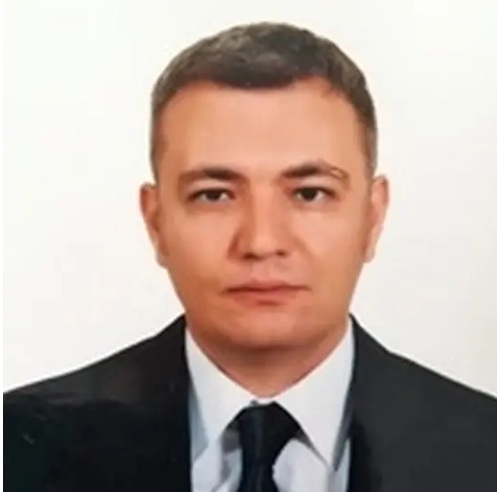
Dr. Giray Gozgor
- Associate Professor of Economics/Finance and Head of the Wealth, Inclusive Societies and Ethics (WISE) Research Cluster at the School of Management, University of Bradford.
- Fellow of Advance HE (FHEA) and a Research Affiliate of the CESifo Network at the University of Munich (LMU).
- Listed among Clarivate's Highly Cited Researchers in 2023 and in the IDEAS/RePEc Economist Rankings (Top 1% Authors & 200 Young Economists).

Dr. Huy Pham
- Senior lecturer in finance at RMIT University in Vietnam.
- Founder of RMIT FinTech-Crypto Hub and a regular member of the American Finance Association.
- CFO of GreenAnt, a technology start-up
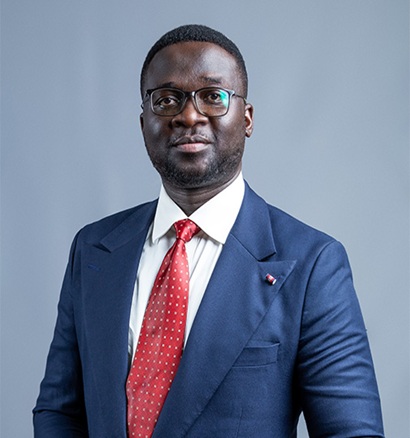
Emmanuel Joel Aikins
- Lecturer in Finance at the University of Ghana Business School (UGBS), Ghana.
- Ph.D. in Finance from the University of Adelaide, Australia
- MPhil in Finance from University of Ghana, and a B.Sc. in Statistics with Computing from University of Cape Coast, Ghana
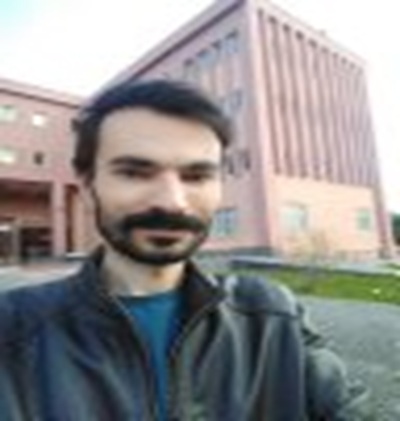
Mustafa Kocoglu
- Assistant Professor, Erciyes University.
- Faculty of Communication, Public Relations and Promotion
Organizing Committee
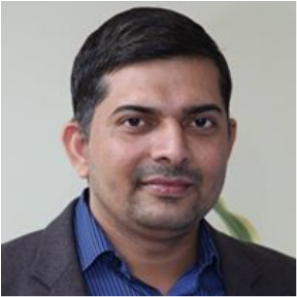
Aviral Kumar Tiwari
- Chairperson - Research & Publications, IIM Bodh Gaya
- CEENRG Research Fellow
- Department of Land Economy
- University of Cambridge, United Kingdom
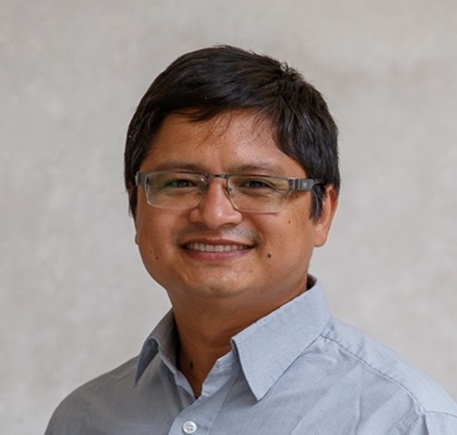
Dr. Prajal Pradhan
- Senior Scientist
- Assistant Professor (University of Groningen
- Studied agricultural engineering and environmental management.
- Received the ERC Starting Grant 2022.

Cecilia Soler
- Associate Professor, School of Business, Economics and Commercial Law, University of Gothenburg
- Ph.D., Buying environmentally friendly daily goods, University of Gothenburg
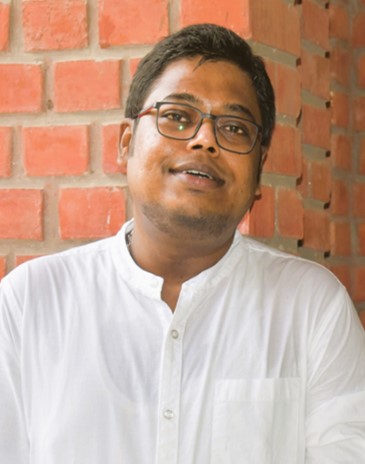
Sk Abu Khalek
- Assistant Professor in the Marketing area at the Indian Institute of Management Bodh Gaya
- Ph.D. from the Indian Institute of Management Lucknow
- MBA, Marketing, Indian Institute of Social Welfare and Business Management
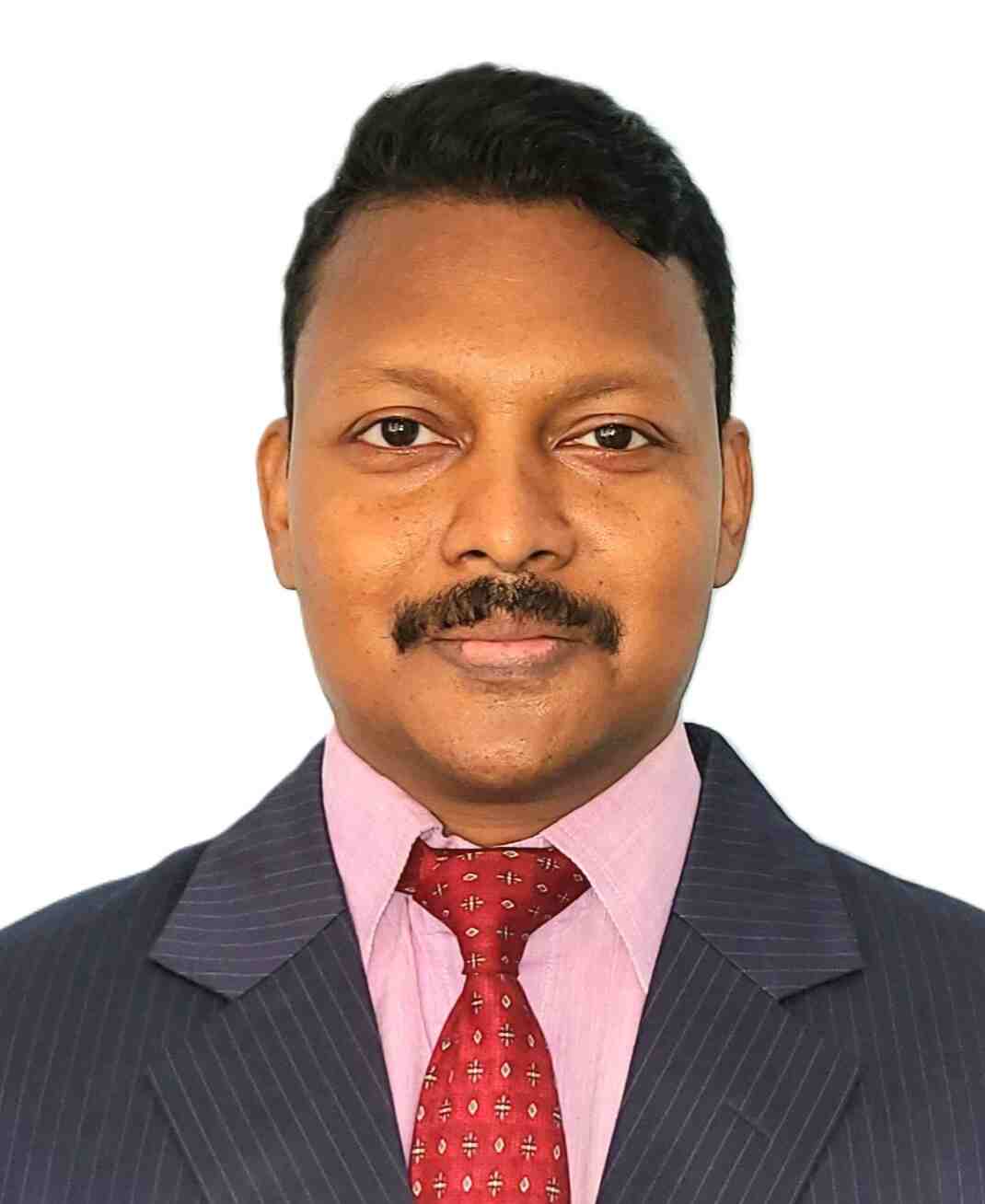
Anup Anurag Soren
- Assistant professor in the marketing management area at the Indian Institute of Management Bodh Gaya
- Ph.D. from the Indian Institute of Management Ranchi
- MBA, Marketing, Indian Institute of Management Bangalore
Contact Us
CONFERENCE CONVENERSProf. Aviral Kumar Tiwary (IIM Bodh Gaya)
Prof. Prajal Pradhan (University of Groningen)
CONFERENCE ORGANIZERSProf. Sk. Abu Khalek (IIM Bodh Gaya)
Prof. Anup Anurag Soren (IIM Bodh Gaya)
Email IDicsg2@iimbg.ac.in
EVENT LOCATIONFebruary 1-2, 2025
Indian Institute of Management Bodh Gaya
Uruvela, Prabandh Vihar
Bodh Gaya – 824234, Gaya, Bihar, India




